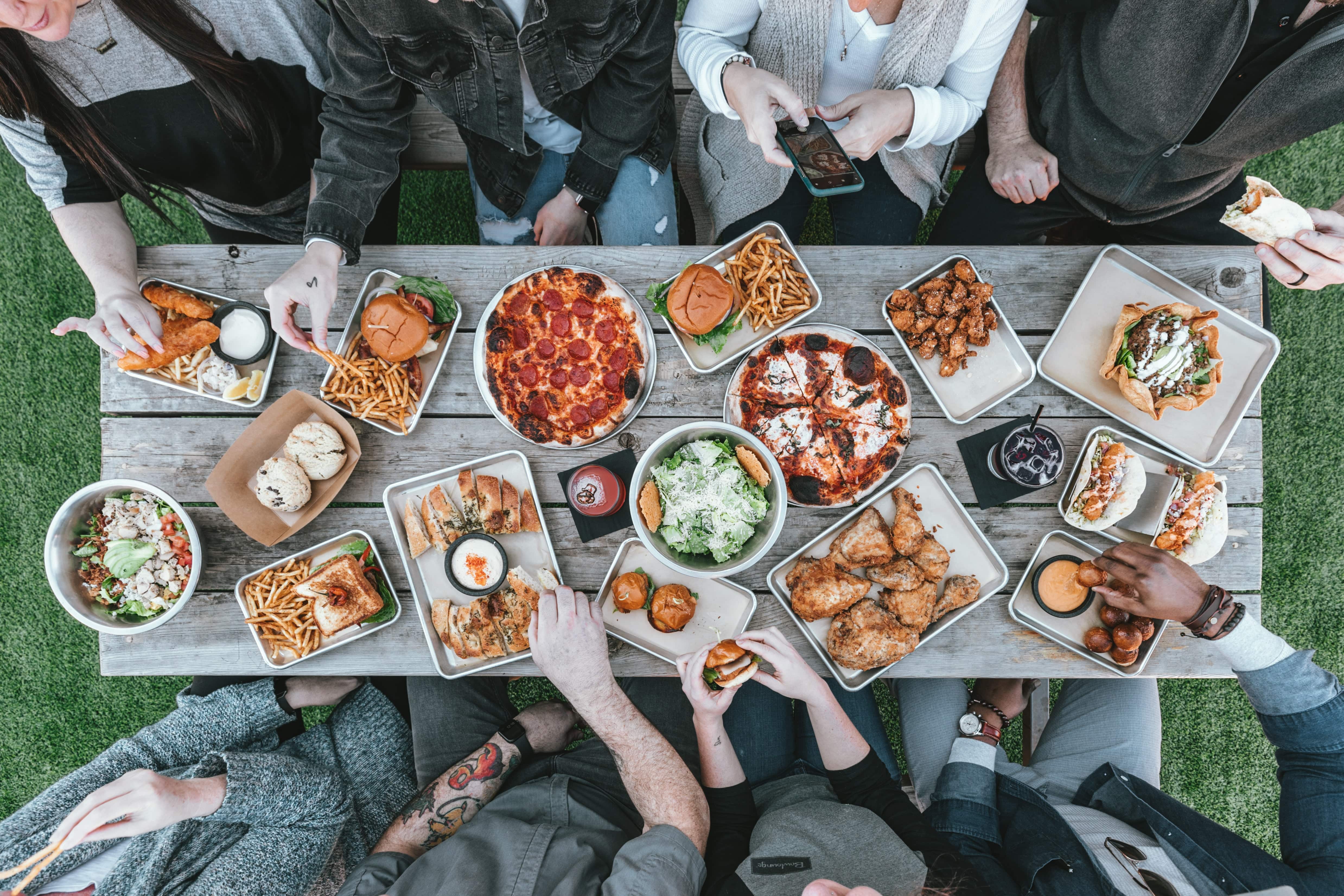
People are more likely to choose less healthy foods for lunch if their coworkers also make unhealthy choices, according to a study. Researchers in the United States analyzed the social media of about 6.000 Massachusetts General Hospital employees and their food choices at staff restaurants.
The team found that eating patterns, whether healthy or not, can be shaped by our peers at lunchtime, even if they're just casual acquaintances. Co-workers can, explicitly or implicitly, give each other a license to buy unhealthy food or, alternatively, generate peer pressure to make a healthier choice.
The researchers said the findings could help design new public health interventions in cafeterias and workplaces to encourage healthier lunch options.
«We found that people tend to mirror the food choices of others in their social circles, which may explain one way obesity spreads through social relationships.said public health expert Douglas Levy of Massachusetts General Hospital.
Your colleagues can encourage you to eat a worse diet
In their study, Dr. Levy and his colleagues studied some 6.000 co-workers who frequented the seven Massachusetts General's cafeterias over a two-year period.
By not using a highly controlled environment like a university dining hall, for example, which has been the focus of many previous studies, the team was able to consider people of various ages and socioeconomic status in a real-world setting.
All cafeterias employ a "traffic light" labeling system that classifies the food and beverages they sell as Verde (healthy), yellow (less healthy) and Red (not healthy). This, and the hospital's digital payment system based on staff ID cards, allowed the researchers to track the wholesomeness of each employee's selections over time.
Time-stamped purchases also gave the team a way to infer employees' social relationships by analyzing who tended to eat at the same cafeteria at the same time of day and make food purchases in short succession. «Two people who shop within two minutes of each other, for example, are more likely to meet than those who shop within 30 minutes of each other.explained Dr. Levy.

Your purchases are similar to your environment
Once they established their model of hospital staff's social relationships, the team validated it against surveys of more than 1.000 staff, each of whom was asked to confirm the names of their regular dining companions.
«A novel aspect of our study was combining complementary data types and borrowing tools from the analysis of relaciones socialessaid sociologist Mark Pachucki of the University of Massachusetts at Amherst. This allowed them to examine how the feeds of a large group of employees were socially connected over a long period of time.
After analyzing some three million pairs of employees who shop together at the cafeteria, the research team concluded that food purchases from people who were online socially with each other were consistently most similar how different
«The effect size was slightly stronger for healthy foods than for unhealthy ones.noted Dr. Levy.
The researchers were also able to confirm that people were influencing one another, rather than a case of like-minded people being more likely to associate with each other, a phenomenon experts call "homophily«.
«We controlled for characteristics that people had in common and analyzed the data from numerous perspectives, consistently finding results that supported social influence rather than homophile explanations.continued Dr. Levy. «People can change their behavior to cement the relationship with someone in their social circle.", he explained. “As we emerge from the pandemic and physically return to work, we have an opportunity to eat together in a healthier way than before.commented Professor Pachucki.
If your eating habits influence the way your coworkers eat, even a little, changing your food choices for the better could also benefit your coworkers.